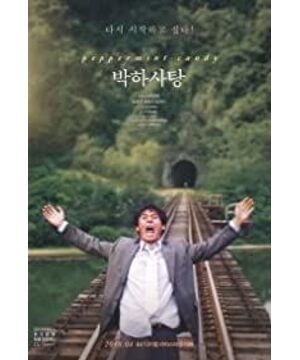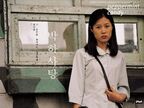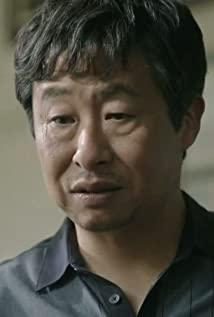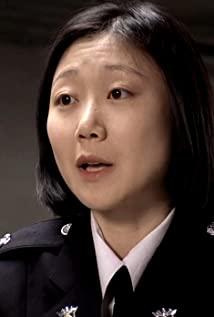South Korean director Lee Cangdong's early work "Mints" is such an easy-to-understand movie. It starts rewinding from a second before death of a middle-aged man on the verge of suicide, and analyzes the causes of this complicated and extremely disgusting character one step at a time, until we see him before the hammer of fate hits him. Sunshine on the face.
This kind of narrative is meaningful only when life has been going downhill, because no one wants to ask the "why" question about success. Success is always the addition of building blocks day after day, and failure is often dominoes. So people always want to know how the first one that destroyed the entire Great Wall fell.
"Mint" is reminiscent of many dramas that are also reverse chronological, such as Pinter's "Betrayal", especially Sondheim's musical "Merrily We Roll Along". The success of Pinter's play may be due to the smallness of his subject matter and the separation of the atmosphere, while the failure of Sang play makes people wonder whether the genre of the play is too tight for the description of the whole life.
This is also one of the core problems of "Mint": Although it is much better than "Merrily" in detail, it still has no way to completely solve its continuity problem. The twenty-year time span was condensed into seven time points, and most of the days were thrown into the transition between the scenes. So the scenes we see sometimes hit the nail on the head, and sometimes they are overly dramatic. This is exactly the result of trying to compress the gradual transformation of the whole life into a few small stations to reflect the inevitable result.
Another problem with movies is the shift in balance. This man's life was so miserable, and all the way back was full of cynicism, remorse, and torture. It was not until the last scene that we were able to see what he looked like when he was happy. But as we know, his beautiful vision was killed by him personally when he just strayed from the track. From the moment the gun was fired, he had become a Xiangzi-like walking dead, so what is the meaning of his life after that for us?
The experience of a single person is closely connected with the development of the social state era. This film sets an important background line for this person. In this film, I learned about the difficult democratic process in Korea for the first time. But the question is, does the film imply that the high pressure in the society is the cause of his entire life of failure? I believe that Li Cangdong is not using this person's experience to point the finger at the times and history, but the excessive white space and unbalanced plot weight make the combination of these two lines no longer close.
But "Mints" is still a fascinating melodrama. The hero is first of all Li Cangdong's guidance of the scene. The smooth and focused long shots and composition strengthen the conflict and contrast, making the film look very cinematic; Xue Jingqiu's performance Impeccably, he performed the desires and regrets of the characters at all stages in this almost marathon-like task, making the audience almost understand a completely incomprehensible character.
In the last scene of the film, the actor has a deja vu experience. But it was obviously not his memory that was illuminated, but his vague future. This sense of seeing the future is the most moving poetry in the film, and it is much more touching than the certain love token of mint. "Mints" is the title of the movie, but it is not the main motivation of the movie. It is one of the densely packed details in this film, perhaps the sweetest and most coherent one, but it is not more representative of this person's life than the other. In my opinion, this movie can also be called "camera", "crimp" or "police violence".
The main motive of the film is undoubtedly time itself, oh, I guess the word is not catchy enough for the title.
View more about Peppermint Candy reviews











